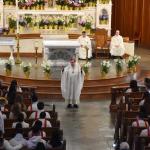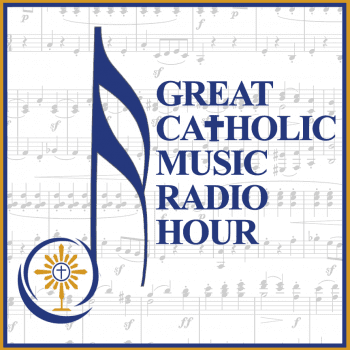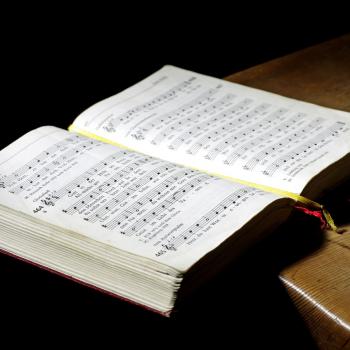Our choir will be offering this as the communion hymn Sunday.
Some background:
“Ave verum corpus” is a short Eucharistic chant that has also been set to music by various composers. It dates from the 14th century and has been attributed to Pope Innocent VI.
During the Middle Ages it was sung at the elevation of the sacramental bread during the consecration. It was also used frequently during Benediction of the Blessed Sacrament.
The poem is a meditation on the Catholic belief in Jesus’s real presence in the sacrament of the Eucharist, and ties it to the Catholic conception of the redemptive meaning of suffering in the life of all believers.
Translation:
Hail, true Body, born
of the Virgin Mary,
having truly suffered, sacrificed
on the cross for mankind,
from whose pierced side
water and blood flowed:
Be for us a foretaste [of the Heavenly banquet]
in the trial of death!O sweet Jesus, O holy Jesus,
O Jesus, son of Mary, have mercy on me. Amen.
About the composer, Edward Elgar:
He was an English composer, many of whose works have entered the British and international classical concert repertoire. Among his best-known compositions are orchestral works including the Enigma Variations, the Pomp and Circumstance Marches, concertos for violin and cello, and two symphonies. He also composed choral works, including The Dream of Gerontius, chamber music and songs. He was appointed Master of the King’s Musick in 1924.
Although Elgar is often regarded as a typically English composer, most of his musical influences were not from England but from continental Europe. He felt himself to be an outsider, not only musically, but socially. In musical circles dominated by academics, he was a self-taught composer; in Protestant Britain, his Roman Catholicism was regarded with suspicion in some quarters; and in the class-conscious society of Victorian and Edwardian Britain, he was acutely sensitive about his humble origins even after he achieved recognition. He nevertheless married the daughter of a senior British army officer. She inspired him both musically and socially, but he struggled to achieve success until his forties, when after a series of moderately successful works his Enigma Variations (1899) became immediately popular in Britain and overseas. He followed the Variations with a choral work, The Dream of Gerontius (1900), based on a Roman Catholic text that caused some disquiet in the Anglican establishment in Britain, but it became, and has remained, a core repertory work in Britain and elsewhere. His later full-length religious choral works were well received but have not entered the regular repertory.
Not only that: the woman he married was reportedly disinherited by her family because she chose to marry a Catholic.
Give a listen to his masterful Ave Verum below. It’s gorgeous.
















